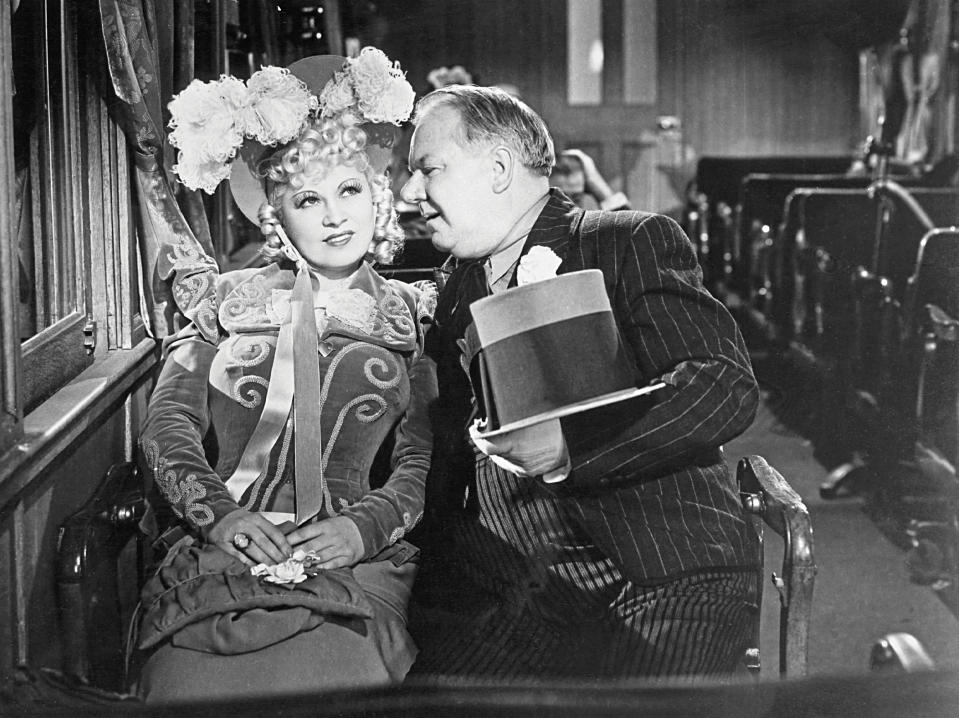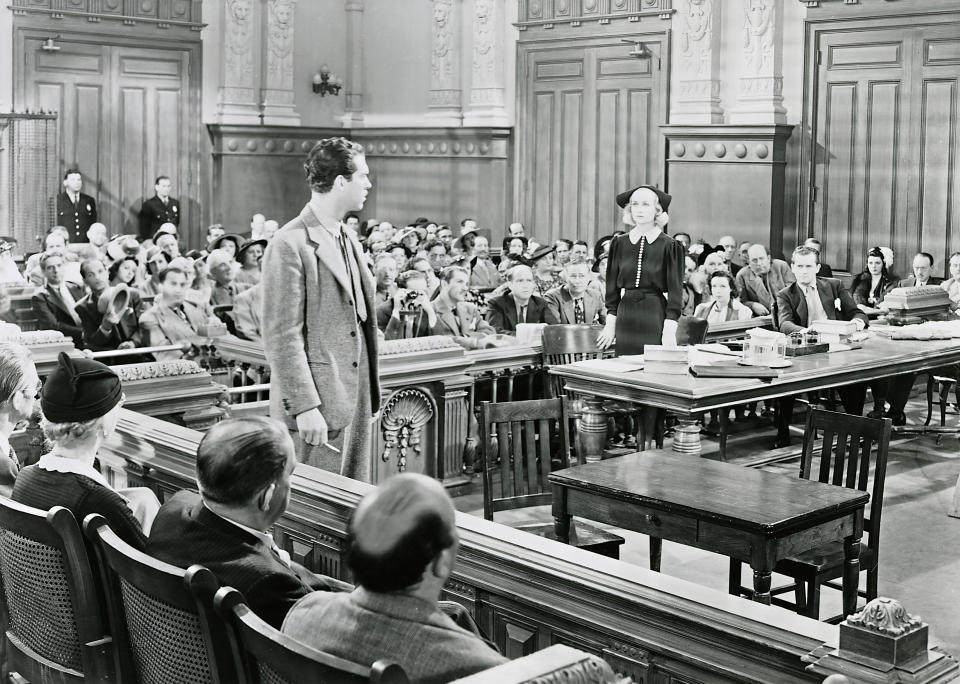Berlin’s Mae West, Rosalind Russell and Carole Lombard Retro Delivers Sparkling Pics for Unsparkling Times
- Oops!Something went wrong.Please try again later.
- Oops!Something went wrong.Please try again later.
- Oops!Something went wrong.Please try again later.

To lose ourselves in a world of winks and wisecracks from quick-witted showgirls, ditzy heiresses and fast-talking career women may seem like a borderline irresponsible choice in These Troubled Times. But the blast of pure pleasure that is the Berlin Film Festival’s 27-movie tribute to Mae West, Rosalind Russell and Carole Lombard is an act of cinematic self-care with a precedent. The “No Angels” Retrospective, which co-ordinator Annika Haupts says was conceived as “mood-lightening” counter-programming during Germany’s first corona lockdown, comprises comedies that were themselves developed during America’s Great Depression. Spanning 1932 to 1943, there are ordained classics like “My Man Godfrey,” “His Girl Friday,” “Twentieth Century,” “To Be or Not to Be” and “The Women.” But there’s also a trove of less well-known treasures, united by irreverence and leading ladies whose charisma transforms the contrivances of Hayes Code-era Hollywood into escapism so effervescent it froths the blues away. As before, during a gloomy period for a glum population, screwball might just save our sanity.
West was the genesis of the program, says curator Rainer Rother. Carole Lombard quickly followed, as West’s “opposite extreme,” with Russell chosen as a “bridge” between them. But what comes through is the actresses’ individuality and the delightful contrast between — respectively – the brassy, classy and sassy modes of pre-war femininity they represent.
More from Variety
Alexander Zolotukhin Flies High in Berlinale Encounters Premiere 'Brother'
Kurdwin Ayub on Sexual Identity, Social Media and Self-Discovery in Berlin Premiere 'Sonne'
Even in a sample group of three, however, hands on hips, smirk on lips, West stands apart. Basically her own weather system since she gatecrashed Hollywood aged 39 with a matronly sex symbol persona no one dared attempt thereafter, she is repped here by her first nine features. Most of them, admittedly, bleed into one another with West a showgirl/circus performer/movie star/nightclub singer about whom men talk in tumescent terms and who purrs her dialogue (usually penned by West) so heavily that any double meanings get squished down to single entendres. But there are standouts: “She Done Him Wrong” and “I’m No Angel” are fun for spotting her catchphrases as they debut and also for a game, if not wholly assured, Cary Grant at an early stage in his self-creation. Best of all, there’s “My Little Chickadee,” a terrific early example of crossover IP as the Mae West and WC Fields Cinematic Universes vie for supremacy (the stars co-wrote the screenplay), with verbose and very funny results.
Workspace user
Lombard and Russell, both around 15 years younger, are more easily considered contemporaries. In “No Man of Her Own,” in which Lombard stars opposite her future husband Clark Gable, her stardom is still nascent, yet in Rother’s words, it is remarkable how even at 23, “she could turn a Gable movie into a Gable/Lombard movie.” Rother’s own pick of the more obscure titles he hopes will be rediscovered, however, is 1937 Lombard title “True Confession.” With a bonkers plot involving a woman inadvertently confessing to a murder she didn’t commit and her lawyer husband defending her at trial, along with “My Man Godfrey,” “Nothing Sacred” and indeed “No Man of Her Own,” it shows Lombard’s genius for taking a character written as irritating and potentially unlikable, and making her lovable.
Lovability was always the quality that Rosalind Russell’s onscreen foils challenged her over. With her snappish, smartass energy, Russell’s persona as the career gal whose ambition makes her somehow unwomanly is showcased in her roles as, variously, a judge, an ad exec, a literary agent, an aspiring writer, a magazine editor, a hypercompetent secretary and a self-identifying “newspaper man” twice over (in “His Girl Friday” and bafflingly underseen gem “Four’s a Crowd,” co-starring Errol Flynn and Olivia de Havilland.) In all these cases, her ultimate fate is marriage, but the Code-approved domesticated endings cannot detract from the inventive subversion and insight of what comes before. In “Take a Letter Darling,” businesswoman Russell uses her male assistant as a fake fiancé when clients get too amorous. But while it inevitably ends with the fake engagement becoming real, what you remember more are the lovely, lived-in details: it’s a personal favorite of Haupts’ partly because of how Russell kicks off her heels in her office and shuffles around instead in “cozy shoes.”
unbekannt
“True Confession” and “Take a Letter Darling” both co-star Fred MacMurray, and it’s less than coincidental that both curators champion films with his unusually strong counterbalancing male presence. Elsewhere, male leads can be recessive, and the battles-of-the-sexes dynamic works far better when there’s a MacMurray, a Grant, a Flynn or a William Powell on the other side of the see-saw. Another exhibit ripe for discovery in this regard: Russell vehicle “This Thing Called Love” in which horny husband Melvyn Douglas uses an impromptu rumba as cover for scratching his poison oak rash against a pillar, and it is hilarious.
Beyond the sometimes unbalanced romances, female friendships can provide their own gently progressive agenda. Even man-eating West has her sisterhood moments, from the frank, friendly banter she has with her (often African-American) maids, to the times she does a reverse “Jolene” and cedes an admirer to some other girl. Russell’s “My Sister Eileen” is primarily about two small-town sisters pursing career dreams in New York City, and Lombard’s equally unjustly disregarded “Lady by Choice” finds its real heart in her interactions with her fake mother. But then, these are films that were designed, in Haupts’ words, to provide just a glimpse at various “possibilities” for escape, for happiness in an unhappy time, and they’ve aged like champagne that, decades later, miraculously retains its sparkling, restorative fizz.
Best of Variety
Sign up for Variety’s Newsletter. For the latest news, follow us on Facebook, Twitter, and Instagram.



